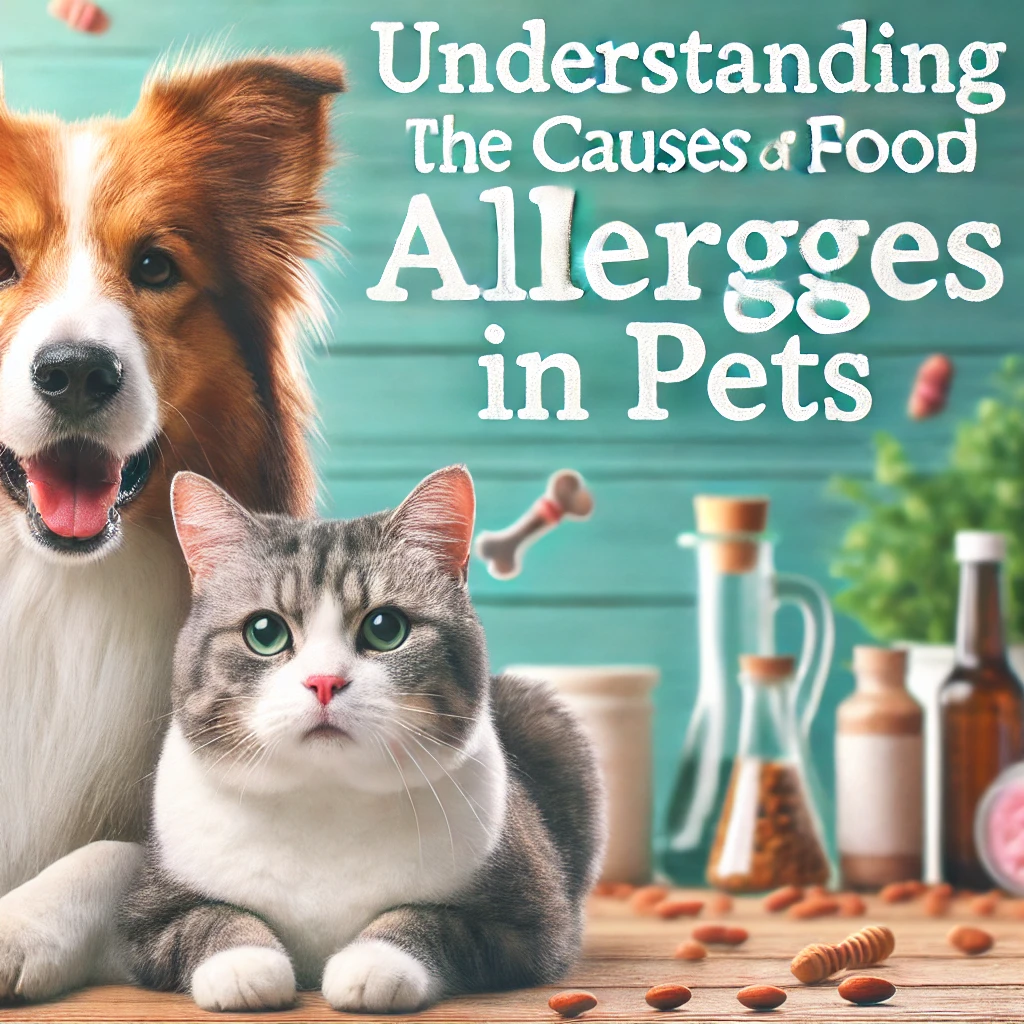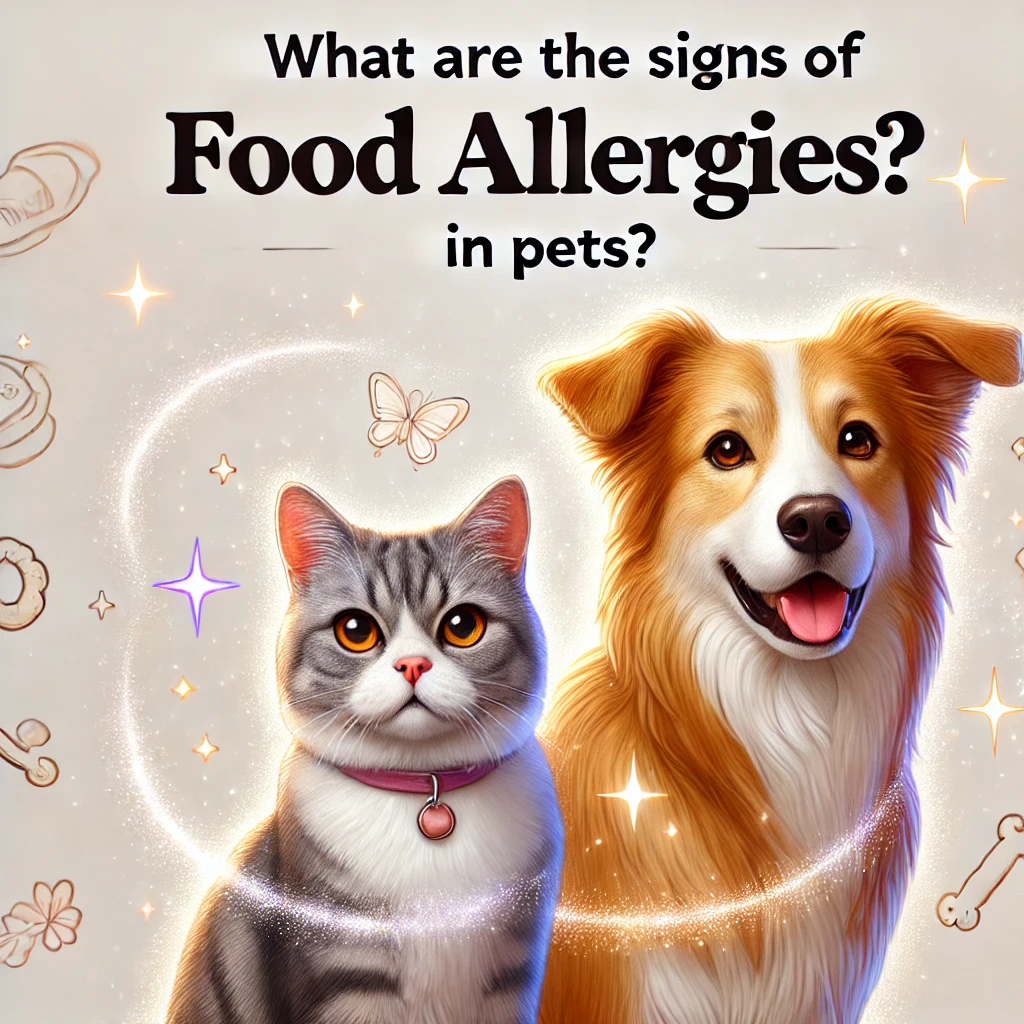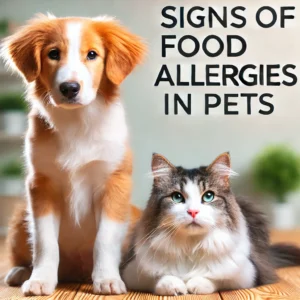What Are the Signs of Food Allergies in Pets?
Understanding the Causes of Food Allergies in Pets

Introduction to Food Allergies in Pets
Food allergies in pets can cause a wide range of uncomfortable symptoms, from skin irritation to digestive issues. Recognizing the signs early can make all the difference in managing your pet’s health and ensuring they live a happy, comfortable life. Food allergies in pets often present as chronic, ongoing symptoms that can be difficult to pinpoint. In this article, we’ll explore the most common signs of food allergies in pets, why they happen, and what you can do to help.
Common Signs of Food Allergies in Pets
1. Skin-Related Symptoms
One of the most noticeable signs of food allergies in pets is skin irritation. Allergic reactions in pets often cause intense itching, redness, and inflammation, especially around the face, paws, ears, and belly. Chronic ear infections or skin infections may also be present due to repeated scratching.
2. Digestive Symptoms
Food allergies in pets frequently lead to digestive problems such as vomiting, diarrhea, gas, and bloating. If your pet experiences frequent digestive upset, it could be a sign that certain foods are not agreeing with them. Be sure to observe for any changes in stool or appetite.
3. Respiratory Symptoms
While not as common, some pets may show respiratory symptoms due to food allergies. Sneezing, coughing, and nasal discharge are signs that your pet may be experiencing an allergic response. Pay attention to any breathing difficulties or changes in energy levels.
4. Behavioral Changes
When pets are uncomfortable, they often change their behavior. Pets with food allergies may exhibit increased restlessness, agitation, or excessive licking of specific areas, such as paws. Behavioral signs are subtle but often key indicators of underlying issues.
Understanding the Causes of Food Allergies in Pets
Common Food Allergens
Many pet food allergens are similar to those found in human allergies, such as dairy, beef, chicken, eggs, wheat, and soy. These ingredients can trigger immune responses in sensitive pets, leading to the symptoms described above. Identifying allergens is crucial to help reduce symptoms.
How Allergies Develop
Food allergies in pets develop over time as their immune system begins to react negatively to certain ingredients. Repeated exposure to the allergen increases sensitivity, eventually leading to a range of symptoms. Proper diagnosis helps determine the cause and the best course of action.
Diagnosing Food Allergies in Pets
Veterinary Testing and Elimination Diets
Diagnosing food allergies typically involves an elimination diet or specific veterinary tests. During an elimination diet, all potential allergens are removed from the pet’s diet, and ingredients are reintroduced gradually to identify the trigger. Veterinary guidance is essential during this process.
Importance of Accurate Diagnosis
Misdiagnosing food allergies can lead to unnecessary changes in diet, worsening symptoms. An accurate diagnosis allows for targeted treatments, eliminating the allergen from the diet to help alleviate symptoms and improve quality of life.
Managing Food Allergies in Pets
Switching to Hypoallergenic or Limited Ingredient Diets
One of the most effective ways to manage food allergies in pets is by switching to a hypoallergenic or limited ingredient diet. These diets minimize allergenic ingredients, helping to reduce symptoms over time. Consult your veterinarian for guidance on the best food options for your pet.
Monitoring and Adjusting Your Pet’s Diet
Regularly monitoring your pet’s health after changing their diet is important. Note any improvements or recurring symptoms, and keep your vet informed. Adjusting the diet over time can be necessary to ensure complete management of food allergies.
How do I know if my pet has a food allergy or intolerance?
Food allergies and intolerances present similarly, but allergies trigger an immune response while intolerances do not. Consult your vet for proper testing.
Can food allergies in pets go away over time?
Food allergies typically do not go away, but symptoms can be managed with the right diet and care.
What foods should I avoid if my pet has food allergies?
Common allergens include beef, chicken, dairy, eggs, wheat, and soy. Opt for hypoallergenic diets recommended by your vet.
Are there any natural treatments for pet food allergies?
Omega-3 supplements and probiotics may help alleviate symptoms, but dietary changes are the most effective approach.
Is there a difference between food allergies in dogs and cats?
Both cats and dogs can have food allergies, but symptoms and common allergens may differ slightly between the two.
Conclusion: Addressing Food Allergies in Pets for a Happier, Healthier Life
 Recognizing and addressing food allergies in pets is essential for their well-being. With the right diet and veterinary care, many pets live symptom-free, happier lives. Ready to give your pet the best care? Visit KyopetCare.com for top-quality pet care products designed to support your pet’s health journey. From hypoallergenic food to other essential products, find everything your pet needs to thrive!
Recognizing and addressing food allergies in pets is essential for their well-being. With the right diet and veterinary care, many pets live symptom-free, happier lives. Ready to give your pet the best care? Visit KyopetCare.com for top-quality pet care products designed to support your pet’s health journey. From hypoallergenic food to other essential products, find everything your pet needs to thrive!






